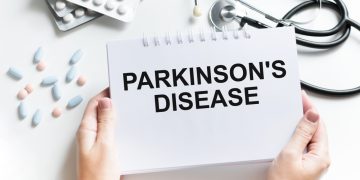On this year’s World Autism Awareness Day, celebrated annual every April 2nd , we take the opportunity to promote awareness, acceptance, and inclusion of individuals with diverse neurological conditions.
The theme of 2025, “Advancing Neurodiversity and the UN Sustainable Development Goals (SDGs),” highlights the connection between neurodiversity and global sustainability initiatives. It demonstrates how inclusive policies and practices can foster positive changes for autistic individuals while supporting the achievement of the SDGs.
With 84 billion brain cells connected in billions of different ways, why should we expect everyone to respond identically to the same environmental conditions?
Recognizing these differences is key to creating a more inclusive society. A major focus of World Autism Awareness Day is the importance of early diagnosis and intervention, which can significantly enhance the quality of life for autistic individuals.
Neurodiversity in the maritime industry
Diverse teams bring fresh ideas, perspectives, and improved problem-solving abilities. In the maritime industry, where safety is paramount and all crew members must meet physical and mental health standards, neurodivergent individuals should not face automatic exclusion. Instead, they should be assessed based on their ability to perform tasks safely. Many individuals with mild neurodivergence already work successfully in roles suited to their skills.
Neurodiversity advocates emphasize the importance of inclusive and respectful language. While many disability advocacy organizations prefer person-first language (e.g., “a person with autism”), research suggests that most of the autistic community favors identity-first language (e.g., “an autistic person”). Instead of making assumptions, it is best to ask individuals how they prefer to be addressed. This awareness is equally important for clinicians treating neurodivergent individuals to ensure respectful and effective communication.
However, neurodivergent seafarers can be more vulnerable to harm, discrimination, and professional disadvantage. In 2023, the motion Support for Neurodivergent Seafarers highlighted the contributions neurodivergent crew members can bring to a vessel, including innovation and enhanced safety management. Proposing the motion, Nautilus member James Stockbridge pointed out that approximately 15% of the general population is neurodiverse, encompassing conditions such as dyslexia, ADHD, and autism.
The strengths of neurodivergent individuals
World Autism Awareness Day also celebrates the unique strengths of autistic individuals. It serves as a reminder for society to build an environment where autistic individuals can thrive and lead fulfilling lives. The broader neurodiversity movement encourages viewing neurological differences as natural variations of the human brain rather than disorders that need to be “fixed.”
As Daniel Smith, Founder, and James Stockbridge, Co-Founder of NeurodiversAtSea, stated in an interview to SAFETY4SEA, the maritime industry must start discussing neurodiversity and neuroinclusion—especially as it transitions to new fuels, technologies, and greater automation.
Companies should focus on individual strengths rather than rigid diagnostic criteria. For example, Anglo-Eastern Ship Management takes a broad approach to diversity, considering not just gender, race, and religion but also neurological differences. While neurodiversity is not always the first aspect considered in diversity discussions, it is equally important.
A neurodiverse workforce includes individuals who think, process, and interact with the world differently—whether they are autistic, dyslexic, have ADHD, or another neurodivergent condition. “We can now confidently say that the marine workforce is neurodiverse,” Smith and Stockbridge affirmed.
Overcoming misconceptions
Unfortunately, neurodivergence is often misunderstood as inherently limiting. Many people focus solely on the support neurodivergent individuals may need without considering their unique talents and contributions.
Neurodivergence is an umbrella term describing brains that function differently from the societal “norm.” This includes autism spectrum disorder (ASD), specific learning differences such as dyslexia and dyspraxia, and attention deficit hyperactivity disorder (ADHD).
Take dyslexia, for example. While commonly associated with reading difficulties, many dyslexic individuals simply need minor adjustments, such as a colored overlay, to help them read more easily. Dyslexia is also linked to strong reasoning, pattern recognition, and decision-making skills.
Advice for neurodiverse seafarers
According to Nautilus International, three key pieces of advice for neurodiverse seafarers are:
- Find a routine that works for you—plan your day but remain adaptable to change.
- Ignore negativity from others—those who belittle you do not understand your challenges or strengths.
- Be yourself—you are an inspiration!
- Embracing neurodiversity in maritime workplaces
A significant stigma still surrounds neurodiversity. Education is crucial to shifting perspectives—understanding that neurodivergence is not necessarily a handicap but a different way of thinking. Labeling individuals too narrowly can limit their potential and have a negative impact. Instead, we should focus on recognizing patterns of strengths and challenges rather than placing people into restrictive boxes.
As the maritime industry embraces digitalization, automation, and environmental sustainability, training programs must adapt to accommodate different learning styles. This will ensure an inclusive and skilled workforce that leverages neurodiverse talent effectively.
Leadership and inclusion
Compassionate leadership—often referred to as “kind leadership”— plays a crucial role in building an inclusive, committed, and motivated workforce. Demonstrating empathy and fostering a culture of respect and support among seafaring crew members helps create a more positive and cooperative work environment. Ultimately, people leave bad bosses, not bad companies.
Key actions for a more inclusive maritime industry:
- Implement clear and effective company-wide commitments to neurodiverse workplaces.
- Provide better education for management regarding neurodiversity.
- Improve access to neurodivergent diagnoses.
- Ensure reasonable workplace accommodations for neurodivergent individuals.
- Conduct further research into neurodivergent seafarers’ experiences.
- Ensure corporate compliance with national and international equality and disability legislation.
- Promote international cooperation to secure code and convention-level recognition and protection for neurodivergent seafarers.
Rethinking neurodivergence
A better way to approach neurodiversity is to recognize that our colleagues at sea have different strengths and weaknesses due to their unique brain functions. Instead of trying to fit people into predefined molds, we should embrace and maximize their talents.
By fostering greater awareness, acceptance, and inclusion, the maritime industry can create a more diverse, innovative, and productive workforce—one that recognizes the full potential of every individual, regardless of neurological differences.
Did You Know?
- While the term neurodiversity has been around since the late 1990s, it is still unfamiliar to many.
- JP Morgan Chase found that neurodivergent employees were 48% more productive in financial services.
- The Australian government reported a 30% productivity increase in software testing when hiring neurodivergent employees.
- Between 10% and 20% of the global population is considered neurodivergent, according to Deloitte.
- 84% of dyslexic individuals excel in reasoning, pattern recognition, and decision-making, according to the charity Made by Dyslexia.































































